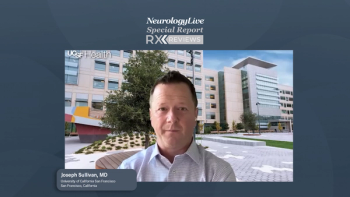
Case 2 Overview: Patient at 16 with Duchenne Muscular Dystrophy
A panelist discusses how a 16-year-old patient with DMD shows more rapid disease progression despite early steroid treatment, with early onset cardiac issues, scoliosis, and increasing upper limb weakness requiring comprehensive specialist care.
Episodes in this series

Clinical Brief: Complex DMD Case with Accelerated Progression
Main Discussion Topics
- 16-year-old male with more rapid DMD progression despite early steroid initiation
- Early loss of ambulation (by age 11) with cardiac complications (sinus tachycardia arrhythmia at 13)
- Development of scoliosis, respiratory insufficiency requiring cough assist device
- Psychosocial impact of disease progression with withdrawal from social activities
Key Points for Physicians
- Some patients progress more rapidly despite appropriate standard care
- Secondary modifier genes may influence disease progression and treatment response
- Integrated multidisciplinary care becomes increasingly important as disease advances
- Regular neurological follow-up should be maintained throughout disease course
Notable Insights
This case demonstrates the significant variability in disease progression despite similar interventions. The patient's accelerated course highlights the potential role of genetic modifiers and underscores the importance of comprehensive multidisciplinary care.
Clinical Significance
Atypical disease progression patterns require vigilant monitoring and coordinated multidisciplinary care, particularly for cardiac and respiratory complications that emerge earlier than expected, while maintaining consideration of available genetic therapies despite advanced disease stage.
Newsletter
Keep your finger on the pulse of neurology—subscribe to NeurologyLive for expert interviews, new data, and breakthrough treatment updates.











